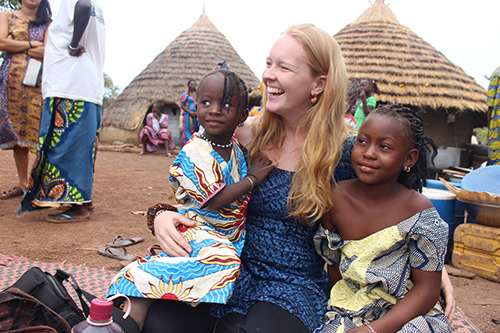
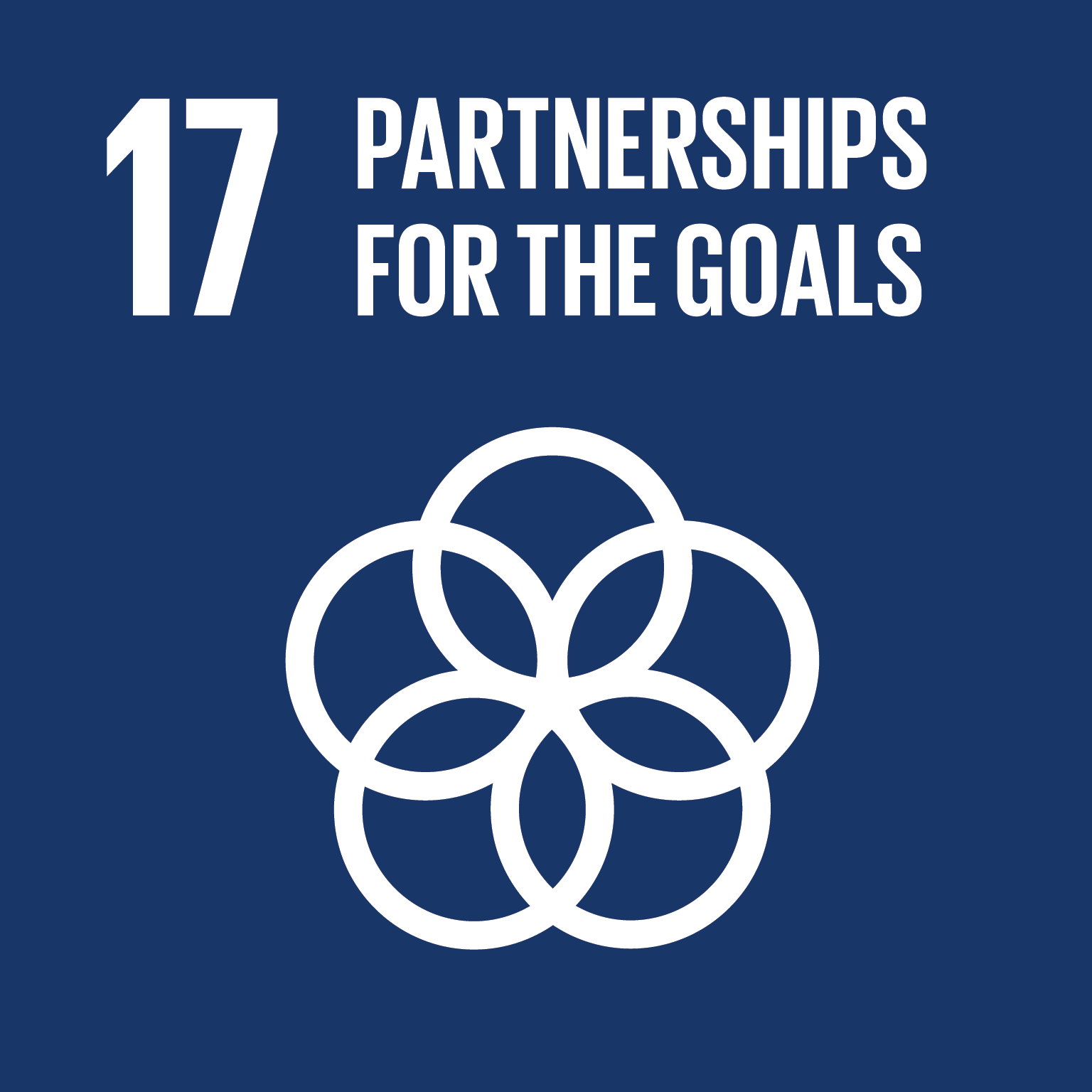
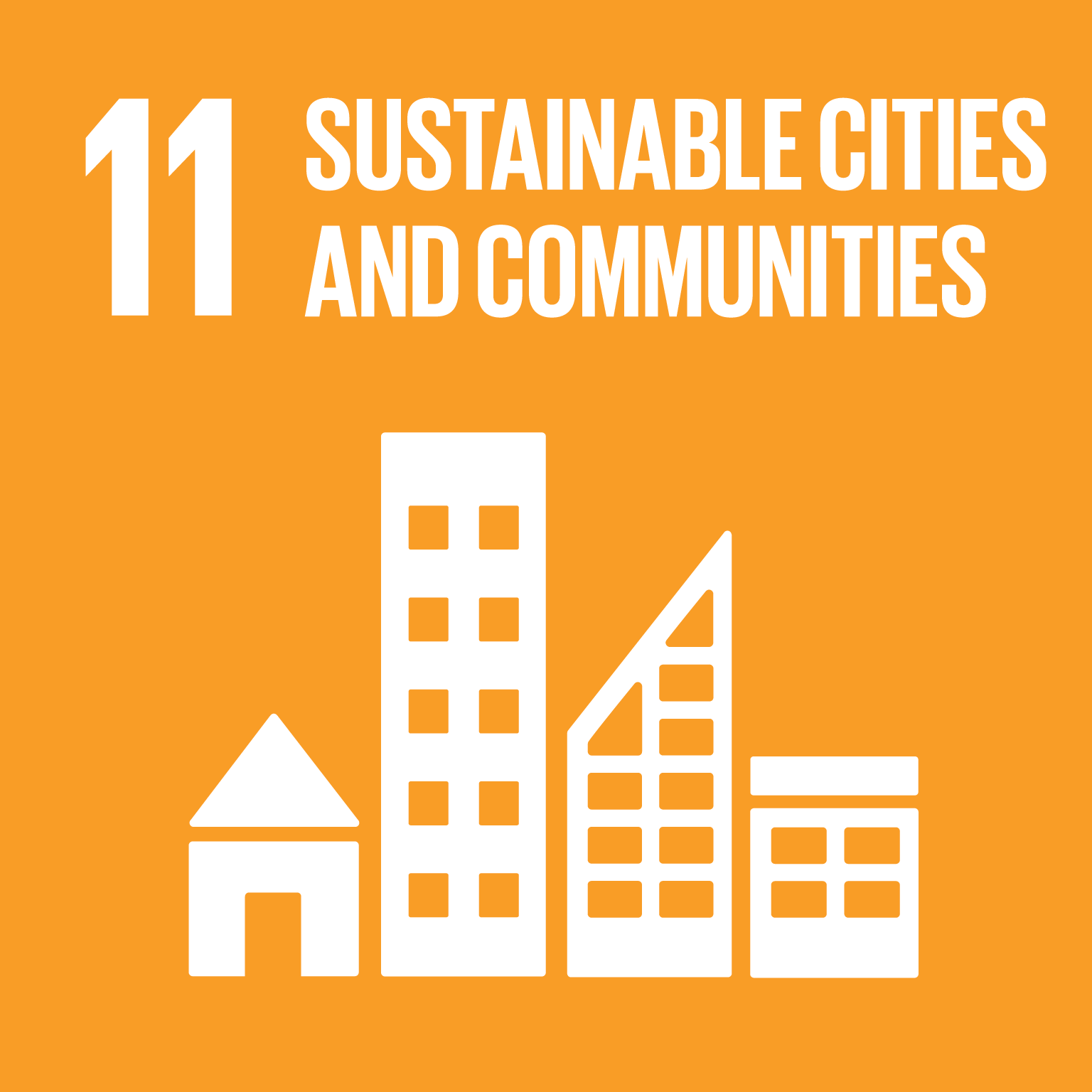
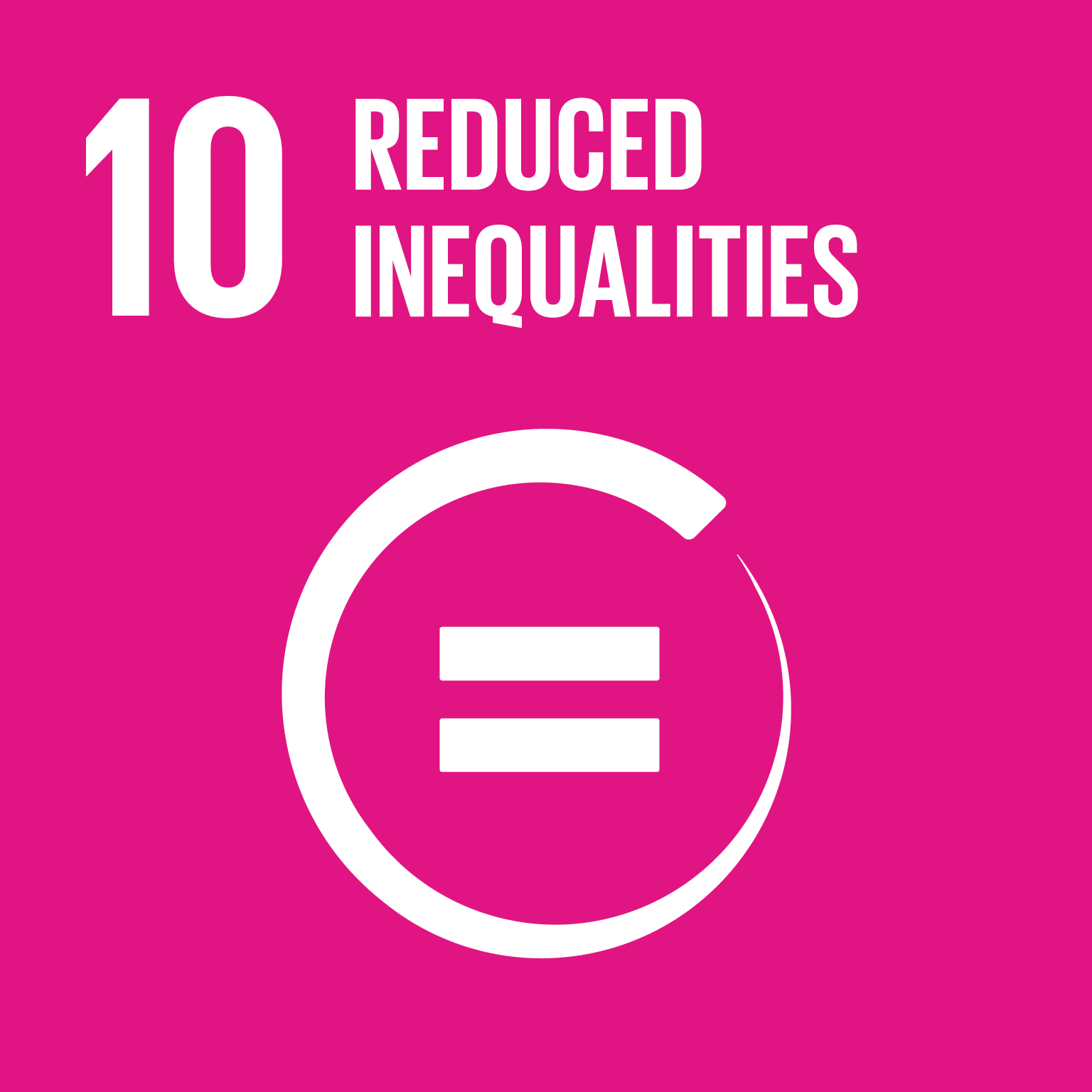
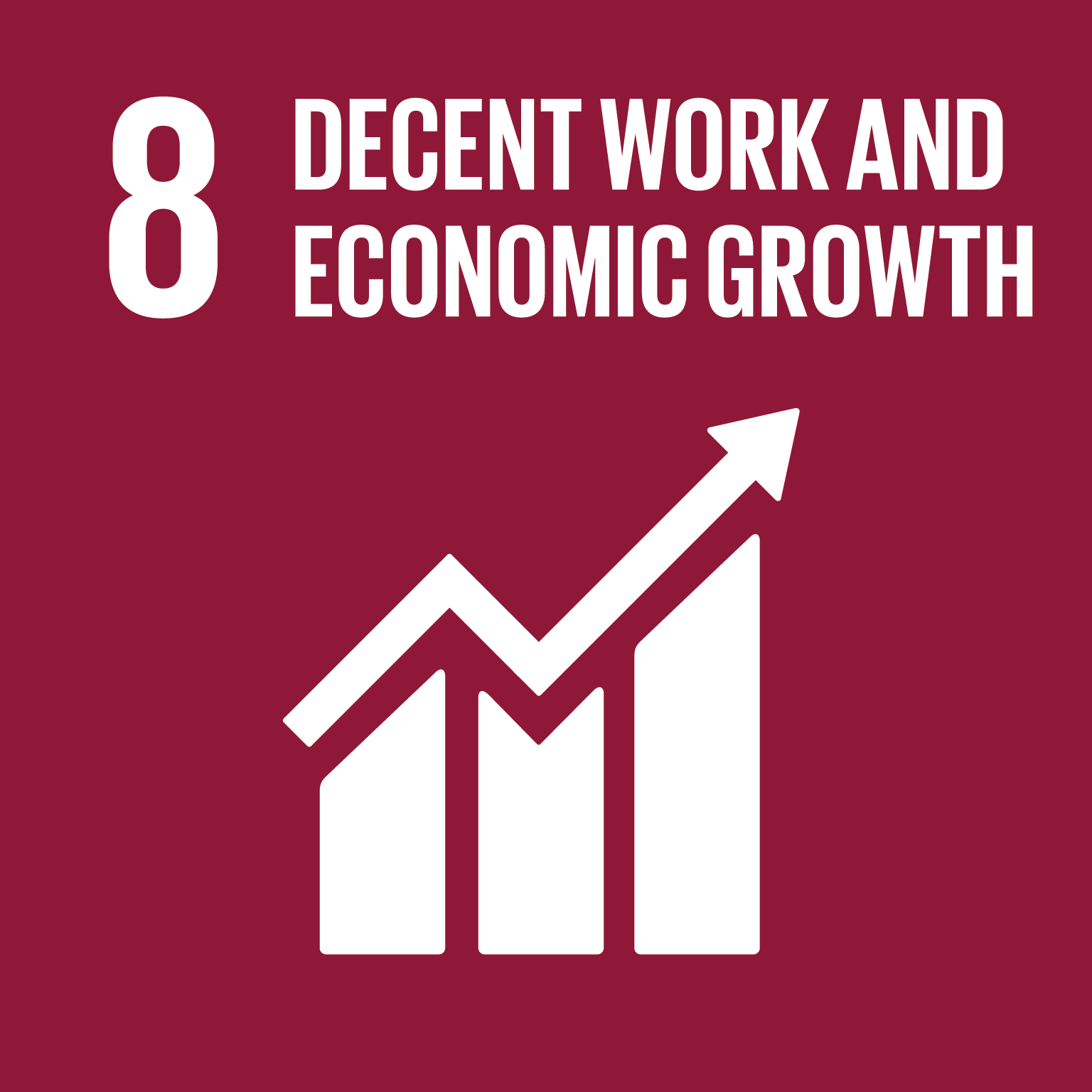 SUNY Geneseo is proud that we number 14 nationwide for active Peace Corps volunteers among medium-sized schools. There are 18 active volunteers in 16 countries, helping to train men and women in healthcare, education, entrepreneurship and other fields, and addressing sustainable development goals to reduce inequality. In recognition, we are creating a digital scrapbook of stories and photos from active and past volunteers from our Geneseo family.
SUNY Geneseo is proud that we number 14 nationwide for active Peace Corps volunteers among medium-sized schools. There are 18 active volunteers in 16 countries, helping to train men and women in healthcare, education, entrepreneurship and other fields, and addressing sustainable development goals to reduce inequality. In recognition, we are creating a digital scrapbook of stories and photos from active and past volunteers from our Geneseo family.
Change: “I plant seeds for trees under whose shade I will not sit.”
By Jessica Kroenert ’15
Geneseo major: International relations, French
Peace Corps service: 2016 to present
Present Peace Corps volunteer location: Kédougou, Senegal, Africa
When I introduce myself in Senegal, I tell people my name is Mata Dia, the name my host family gave me when I began my Peace Corps service as a Community Economic Development volunteer. In America, I’m better known as Jessica Kroenert, adventure seeker, dog enthusiast, and Geneseo grad, class of 2015.
What brought me to Senegal and Peace Corps service? I’d be foolish not to recognize the huge role my experiences at Geneseo played in drawing me to the field of international development. My courses in international relations and French and study abroad experiences with Geneseo’s global service learning program — in Nicaragua my sophomore year and Haiti my senior year — gave me my first taste of living and working in the developing world and helped me recognize that I wanted professional experience in grassroots development.
What drew me specifically to Peace Corps after graduation was their long established history of partnerships with countries all over the world, and even more importantly their focus on community integration. The requirements of two years of service, intensive local language learning, and in many cases living with a host family all help ensure a volunteer has an informed cultural perspective and an eye for sustainable project development in their community.
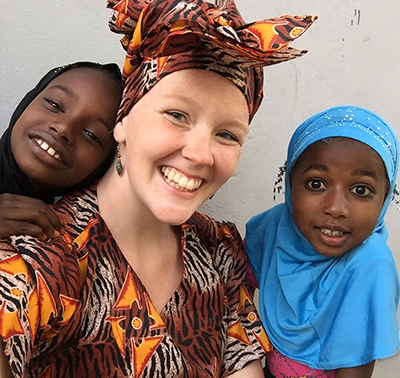 If I learned anything from my Geneseo IR classes and study abroad programs, it was that successful development happens at the grassroots level when projects are informed by a deep knowledge of local culture and work with existing resources to solve problems communities have identified themselves. That’s exactly what Peace Corps’ program is designed to accomplish.
If I learned anything from my Geneseo IR classes and study abroad programs, it was that successful development happens at the grassroots level when projects are informed by a deep knowledge of local culture and work with existing resources to solve problems communities have identified themselves. That’s exactly what Peace Corps’ program is designed to accomplish.
I have been living in Kédougou, the capital of the southeastern most region of Senegal, for a little more than a year now. I live with my host family of about 15 people in a compound where I have my own thatched roof hut . We’re fortunate to have fairly regular electricity and access to tap water, which is not the norm for most villages in my region. Our meals together are shared eating out of one large bowl on the ground, which means I often have a child or two sitting on my feet at mealtime.
Senegal is more than 90 percent Muslim and incredibly ethnically diverse: there’s at least six ethnic groups and their respective languages present in Kédougou alone. This means I’ve been able to celebrate a year’s worth of Muslim holidays for the first time, as well as observe more traditional events such as coming of age celebrations. The language I’ve been learning, Pula Futa, is one of the many dialects of Pulaar or Fulani, a language group of more than 20 million people spread across 20 countries of West Africa.
My new name, my host family, and my knowledge of Pulaar have all helped me integrate and earn respect in my host community, making my job a lot easier. As a Community Economic Development volunteer, my assignment is to inspire youth entrepreneurship and work with business owners, farmers, women’s groups and young people on money management and business skills in an effort to expand the local economy.
Now a year into my service, my main project so far has been a collaboration with my city’s technical high school. Teachers approached me with the idea to develop a school garden to serve as an integrated learning space for teaching both sustainable gardening practices and business skills. So for the better part of a year, a fellow agriculture volunteer and I have been working with students and faculty to develop this garden and teach entrepreneurship, providing students both hard and soft skills to succeed in the tough job market after graduation.
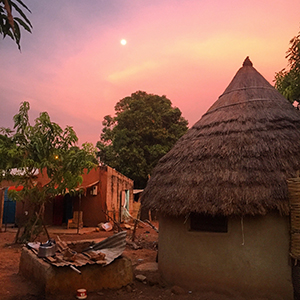 In more ways than one, this project has been a huge challenge. However, I’m increasingly looking at the long term and reflecting on how my fellow volunteer and I are sowing the seeds for something bigger than our two years service. While the garden didn’t produce much in its first year, and students didn’t always show up to meetings, the school now has an impressive interactive teaching space that it can decide to run with however it sees fit.
In more ways than one, this project has been a huge challenge. However, I’m increasingly looking at the long term and reflecting on how my fellow volunteer and I are sowing the seeds for something bigger than our two years service. While the garden didn’t produce much in its first year, and students didn’t always show up to meetings, the school now has an impressive interactive teaching space that it can decide to run with however it sees fit.
Reflecting on the future of this garden space brings to mind a bit of wisdom someone shared during my Peace Corps training: “during your service, you will plant seeds for trees under whose shade you do not intend to sit.” It just so happens that in our garden, this quote has meaning both in its figurative and literal senses.
With one year left in my service, I’m realizing that is what Peace Corps is all about. Projects might not always go as planned, but as a volunteer the key is to be flexible enough to work with what comes your way and persevere through the struggles of living and working in an unfamiliar environment. What you do with your two years probably won’t be groundbreaking and change the world, but it may just set something in motion that can have a huge impact down the line.
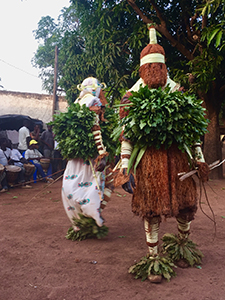 I’m realizing that what really counts in your two years of service are the relationships you build. The conversations you have with friends and family sharing culture and ideas, the hours you spend helping your host siblings with homework to inspiring them to love learning, and the celebrations you’re able to share with your community all have an important impact as well.
I’m realizing that what really counts in your two years of service are the relationships you build. The conversations you have with friends and family sharing culture and ideas, the hours you spend helping your host siblings with homework to inspiring them to love learning, and the celebrations you’re able to share with your community all have an important impact as well.
Besides developing communities, a huge part of Peace Corps’ mission is to foster goodwill between Americans and other peoples. So I’ll do my best to enjoy some quality time with my Senegalese friends and family in my last year, which is sure to fly by just as quickly as my first.
— Top photo by Elle DeJesus of Jessica with members of the village in which she works .
Other photos provided by Jessica Kroenert ’15 : A view of her village, posing with two children, and performers from a coming of age ceremony for boys.
Related Stories
No post found!
